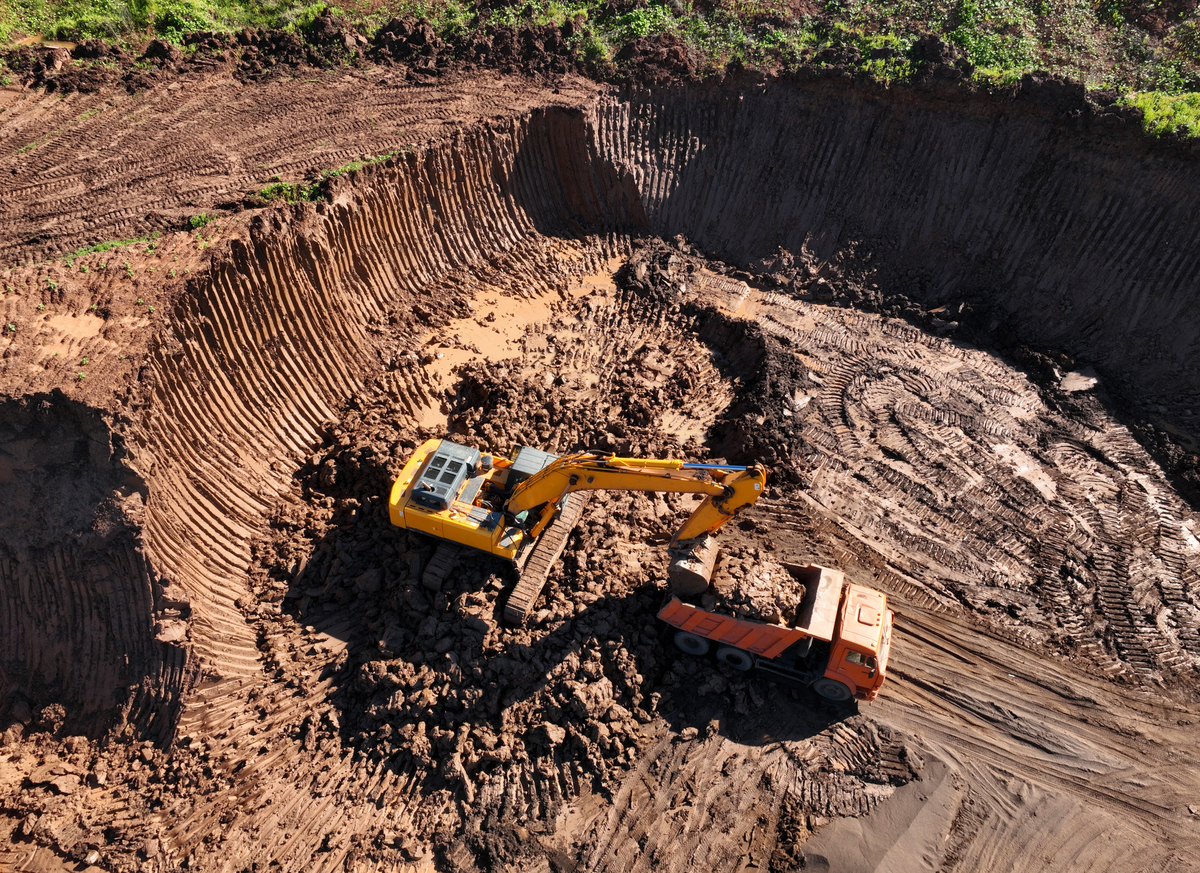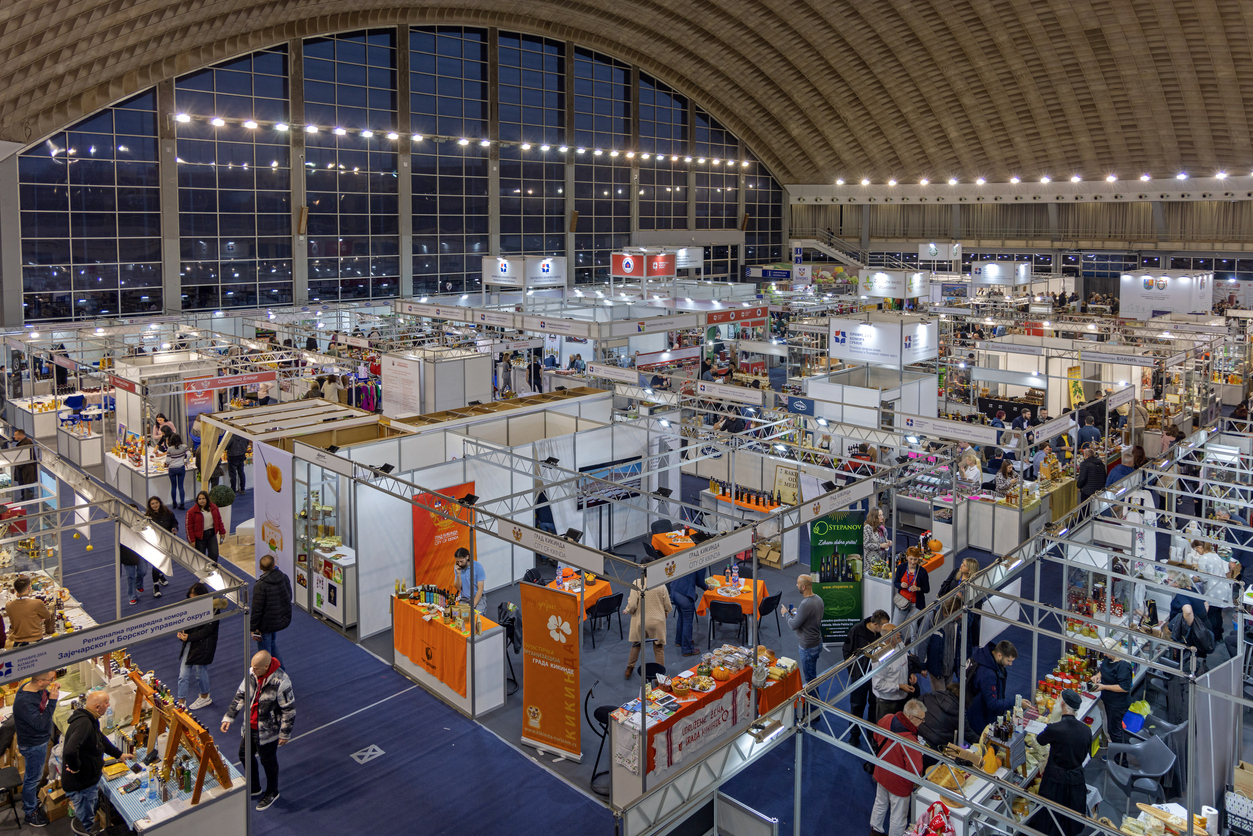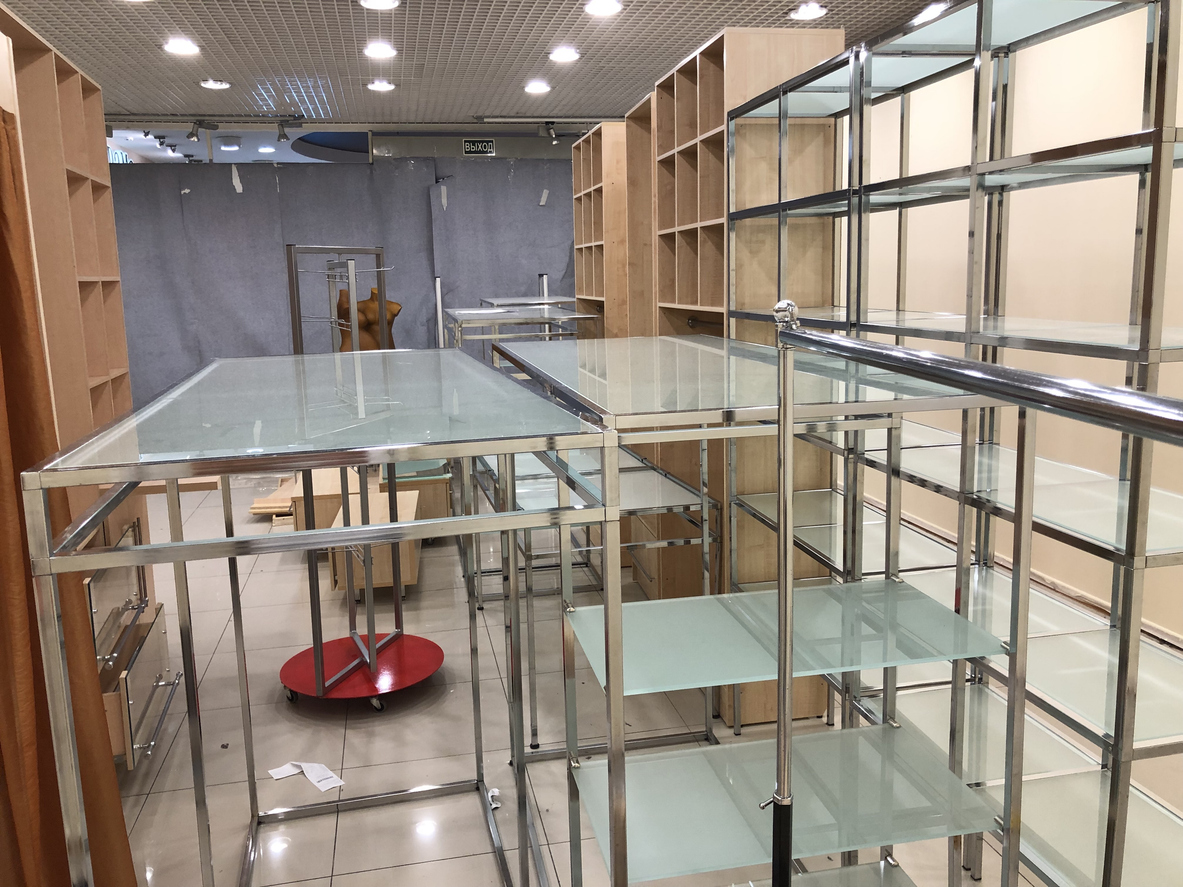Sustainable Mining Practices: How Wigmore Trading is Leading the Way in Nigeria’s Clay and Kaolin Industry
Sustainable Mining Practices: How Wigmore Trading is Leading the Way in Nigeria’s Clay and Kaolin Industry
Welcome to our blog! Today, we are thrilled to share with you an exciting story of innovation and sustainability in Nigeria’s clay and kaolin industry. In this post, we will unveil the groundbreaking efforts of Wigmore Trading, a trailblazer in sustainable mining practices. Join us as we explore how this visionary company is not only revolutionizing extraction methods but also reshaping the future of an entire industry. Get ready to be inspired by their commitment to preserving the environment while maximizing productivity and profitability. Let’s dive into the world of sustainable mining practices with Wigmore Trading, where clay and kaolin meet eco-consciousness!
Introduction: Brief overview of the mining industry in Nigeria and the impact on the environment
Introduction: Brief overview of the mining industry in Nigeria and the impact on the environment
Nigeria is a country rich in mineral resources, with over 44 different mineral types identified including gold, coal, iron ore, limestone, tin, and clay. The mining sector has played a significant role in the economic development of Nigeria, accounting for about 0.3% to the country’s Gross Domestic Product (GDP) in recent years. However, this growth has come at a cost to both human health and the environment.
The extraction of minerals through mining involves various activities such as drilling, blasting, crushing, and processing which can lead to land degradation, air and water pollution. In Nigeria specifically, one of the sectors that has been heavily impacted by these negative effects is the clay and kaolin industry. Clay and kaolin are important raw materials used in many industries such as ceramics production, paper manufacturing, rubber production among others.
Unfortunately, due to inadequate regulatory measures and lack of enforcement of environmental laws in Nigeria’s mining sector over time has led to unsustainable practices resulting in severe environmental degradation. For instance,Mining sites often have open pits or trenches left unattended after operations are completed leading to soil erosion while chemicals used during processing pollute nearby water bodies affecting aquatic life.
Moreover,mining-related activities release harmful gases into the atmosphere which contribute significantly to climate change. These emissions have also been linked to respiratory diseases such as asthma among communities living near mining sites.
The environmental impacts caused by traditional mining practices in Nigeria raise concerns not only for local communities but also for global efforts towards sustainable development. As a result,government agencies along with international organizations have started implementing policies aimed at promoting sustainable practices within the Nigerian mining industry.
Wigmore Trading is one company that has taken up this challenge by adopting sustainable practices within its operations. As leaders in Nigeria’s clay and kaolin industry,Wigmore Trading recognizes their responsibility towards protecting the environment and the communities in which they operate. The company has implemented various initiatives such as reforestation projects, proper waste management, and use of eco-friendly processing methods to reduce their environmental footprint.
Although Nigeria’s mining industry has contributed to economic growth, it is crucial to address the negative impacts of unsustainable practices on the environment. Companies like Wigmore Trading are leading the way in promoting sustainable mining practices for a better future for Nigeria’s resources and its people.
What is Sustainable Mining?
Sustainable mining refers to the responsible extraction of mineral resources while minimizing negative impacts on the environment and surrounding communities. It involves implementing practices that prioritize long-term social, economic, and environmental benefits over short-term gains.
One key aspect of sustainable mining is ensuring the protection and preservation of local ecosystems. This includes minimizing air and water pollution, conserving biodiversity, and restoring land to its natural state after mining activities have ceased. Sustainable mining also takes into consideration the wellbeing of nearby communities by engaging in transparent communication, promoting local employment opportunities, and respecting indigenous rights.
Wigmore Trading is a leading example of how sustainable mining can be successfully implemented in Nigeria’s clay and kaolin industry. The company has made significant efforts to minimize its environmental impact through various initiatives. For instance, Wigmore Trading has invested in state-of-the-art technology that reduces dust emissions during the extraction process. This not only protects the health of workers but also prevents air pollution that could harm nearby communities.
Furthermore, Wigmore Trading has established a reforestation program aimed at restoring vegetation on land impacted by their operations. This helps to mitigate erosion and maintain water quality for surrounding communities. The company also collaborates with local organizations to promote conservation efforts and protect endangered species in the area.
In addition to environmental considerations, Wigmore Trading prioritizes the wellbeing of its employees and neighboring communities through ethical business practices. The company provides training programs for its employees on safe working conditions and encourages them to report any issues or concerns they may have regarding safety or fair treatment.
Moreover, Wigmore Trading sources most of its workforce from nearby villages, providing employment opportunities for locals and contributing to the economic development of these rural areas. By doing so, they reduce their carbon footprint by reducing commuting distances for workers while simultaneously supporting the livelihoods of community members.
Sustainable mining is crucial for ensuring responsible resource extraction that benefits both present and future generations. As demonstrated by Wigmore Trading, it is possible to operate in the clay and kaolin industry while minimizing negative impacts on the environment and promoting social responsibility. By adopting sustainable mining practices, we can ensure the long-term viability of Nigeria’s mineral resources while also safeguarding the health and well-being of local communities.
– Definition and importance
Definition and Importance:
Sustainable mining practices refer to the responsible extraction of minerals and resources in a manner that minimizes negative impacts on the environment, while also considering social and economic aspects. This approach ensures that natural resources are utilized in a way that meets present needs without compromising the ability of future generations to meet their own needs.
Sustainability has become an increasingly important concept in the mining industry as the demand for mineral resources continues to grow. With finite resources and increasing environmental concerns, it is imperative for companies to adopt sustainable mining practices in order to ensure long-term viability and minimize negative impacts on local communities.
In Nigeria’s clay and kaolin industry, Wigmore Trading is setting an example by leading the way in sustainable mining practices. With over 25 years of experience in the sector, Wigmore Trading recognizes the importance of preserving natural resources while also benefiting local communities.
One of the key aspects of sustainable mining is minimizing environmental impact. This involves implementing strategies to reduce waste generation, using advanced technology to decrease energy consumption, and properly managing water usage. In addition, Wigmore Trading strictly adheres to all environmental regulations set by government bodies, ensuring that their operations do not harm local ecosystems.
Another crucial aspect of sustainability is promoting social responsibility within the community. Wigmore Trading actively engages with neighboring communities through various initiatives such as education programs, healthcare services, and employment opportunities. By involving local communities in their operations and providing them with necessary support, Wigmore Trading aims to create a positive impact on society while also fostering long-term relationships.
Furthermore, sustainable mining practices can also have significant economic benefits. By investing in efficient technologies and processes, companies like Wigmore Trading can reduce operating costs while simultaneously improving productivity. This not only leads to increased profitability but also creates jobs and stimulates economic growth for surrounding areas.
Sustainable mining practices play a vital role in balancing economic development with environmental protection and social responsibility. As demonstrated by Wigmore Trading, adopting these practices not only benefits the company but also has a positive impact on society and the environment. By leading the way in sustainable mining practices, Wigmore Trading sets an example for other companies to follow, creating a more sustainable future for Nigeria’s clay and kaolin industry.
– Benefits for the environment and community
Wigmore Trading has always been committed to practicing sustainable mining in the clay and kaolin industry in Nigeria. This not only benefits the company but also has a positive impact on the environment and surrounding communities. Here are some of the key benefits of sustainable mining practices:
1. Conservation of Natural Resources:
One of the main objectives of sustainable mining is to use resources in an efficient and responsible manner. Wigmore Trading follows this principle by using modern technologies that minimize resource consumption while maximizing production output. This helps in conserving natural resources such as water, energy, and land, which are essential for sustaining life.
2. Reduction of Environmental Impact:
Traditional mining methods can have detrimental effects on the environment, such as deforestation, soil erosion, and air pollution. However, through sustainable practices like reforestation, proper waste management, and use of eco-friendly machinery, Wigmore Trading ensures minimal environmental impact from their operations. This helps in preserving biodiversity and maintaining a healthy ecosystem for future generations.
3. Mitigation of Climate Change:
Mining activities contribute to greenhouse gas emissions through fossil fuel consumption and release of methane gas from underground mines. Sustainable mining practices implemented by Wigmore Trading help reduce these emissions through renewable energy sources and efficient use of resources. Additionally, they also actively participate in carbon offset programs to mitigate their carbon footprint.
4. Creation of Green Jobs:
Sustainable mining practices require skilled labor for operation and maintenance of advanced equipment and technologies used in extraction processes. By promoting green jobs within local communities near their mines, Wigmore Trading not only contributes to economic growth but also provides employment opportunities for nearby residents.
5.Sharing Benefits with Communities:
Sustainable mining goes beyond just minimizing environmental impact; it also takes into consideration the social aspect by sharing benefits with local communities near mines. Through various initiatives like community development projects or providing education opportunities for children living near their operations, Wigmore Trading ensures that local communities benefit from their presence and operations.
Wigmore Trading’s commitment to sustainable mining practices has resulted in numerous benefits for the environment and communities. By implementing these practices, they are not only preserving natural resources but also contributing to the overall well-being of society. Other companies in Nigeria’s clay and kaolin industry can follow their lead and adopt sustainable mining practices to create a better future for all.
Overview of Wigmore Trading
Overview of Wigmore Trading:
Wigmore Trading is a leading company in the clay and kaolin industry in Nigeria, known for its sustainable mining practices. Established in 2007, the company has quickly become a key player in the local market, providing high-quality products and services to various industries such as ceramics, paper, rubber, and plastics.
The company’s headquarters are located in Lagos, Nigeria’s commercial capital, with operations spread across different parts of the country. With state-of-the-art facilities and equipment, Wigmore Trading is able to mine and process large quantities of clay and kaolin while adhering to strict environmental regulations.
One of the key factors that set Wigmore Trading apart from other companies is its commitment to sustainability. The company recognizes that mining can have detrimental effects on the environment if not done responsibly. As a result, it has implemented various measures to minimize its impact on nature.
For instance, Wigmore Trading utilizes advanced technology and machinery that consume less energy and produce minimal waste. This significantly reduces its carbon footprint while also ensuring efficient production processes. Additionally, the company regularly conducts environmental impact assessments to identify any potential risks or hazards posed by their operations.
Furthermore, Wigmore Trading takes great care in rehabilitating mined areas to ensure they are restored back to their natural state once mining activities are completed. This includes planting trees and other vegetation as well as managing any changes in topography caused by mining.
In addition to its focus on sustainability, Wigmore Trading also prides itself on maintaining high ethical standards throughout all aspects of its business operations. The company strictly adheres to labor laws and provides fair working conditions for its employees. It also supports local communities by creating job opportunities for residents near their mining sites.
Moreover, Wigmore Trading prioritizes safety at all times. The company has stringent safety protocols in place to protect both employees and visitors within their premises.
Through its commitment to sustainability and ethical practices combined with its dedication to providing top-quality clay and kaolin products, Wigmore Trading has become a trusted and respected name in the industry. The company continues to lead the way in promoting sustainable mining practices while meeting the growing demand for these essential minerals both locally and internationally.
– History and background
History and Background
The clay and kaolin industry in Nigeria has a long history, dating back to pre-colonial times. These minerals were utilized by ancient civilizations for pottery making, decoration, and as natural remedies due to their abundance in the country’s soil.
However, it was not until the 1950s that large-scale commercial mining of clay and kaolin began in Nigeria. This was driven by the increasing demand for these minerals in various industries such as construction, paper production, cosmetics, and pharmaceuticals.
In the early days of mining, traditional methods were used which often resulted in environmental degradation. The lack of regulations and oversight also led to health hazards for miners and nearby communities. As a result, there was growing concern about the sustainability of this industry.
It wasn’t until the 1970s that stringent environmental laws were put in place to regulate mining activities in Nigeria. This marked a turning point for the clay and kaolin industry as companies had to adopt more sustainable practices or face penalties.
Despite these efforts, unsustainable practices continued to be prevalent among many mining companies in Nigeria. The lack of enforcement of regulations allowed them to continue operations without proper waste management or reclamation plans.
In recent years, however, there has been a shift towards sustainable mining practices in Nigeria’s clay and kaolin industry. Companies like Wigmore Trading have emerged as leaders in this movement with their commitment to responsible mineral extraction.
Established in 2005, Wigmore Trading is a Nigerian-based company specializing in the sourcing and supply of high-quality raw materials including clay and kaolin. From its inception, sustainability has been at the core of its operations – from ethical labor practices to eco-friendly mining techniques.
Wigmore Trading employs modern technology such as remote sensing surveys to identify potential sites for mining without causing harm to surrounding areas. They also use advanced machinery that reduces water usage during processing while maximizing resource recovery through recycling processes.
In addition to environmental sustainability, Wigmore Trading is also committed to the social and economic well-being of the communities in which they operate. They provide employment opportunities for locals and support education initiatives that encourage sustainable practices.
Through their dedication to sustainable mining practices, Wigmore Trading has set an example for other companies in Nigeria’s clay and kaolin industry. With their success, it is evident that responsible mineral extraction can coexist with economic growth and preservation of the environment.
– Mission statement
At Wigmore Trading, our mission is to revolutionize the clay and kaolin mining industry in Nigeria through sustainable practices. We understand that the mining sector has a significant impact on the environment, and we are committed to minimizing our footprint while maximizing the potential of these natural resources.
Our first goal is to ensure responsible extraction of clay and kaolin from the earth. This means implementing strict environmental policies and procedures that prioritize land preservation, water conservation, and air quality control. We have invested in state-of-the-art equipment that minimizes dust emissions and reduces noise pollution during mining operations.
We also believe in leaving a positive impact on the communities where we operate. As such, our second objective is to promote social responsibility by engaging with local stakeholders and supporting community development projects. We provide employment opportunities for community members and prioritize hiring locally whenever possible. Additionally, we work closely with local authorities to address any concerns or issues related to our operations.
In line with our commitment to sustainability, we continuously strive to improve our processes by investing in research and innovation. We are constantly exploring alternative methods of extracting clay and kaolin that have a lower impact on the environment. Our team of experts stays updated on new technologies and techniques that can help us achieve our sustainability goals without compromising productivity.
Furthermore, at Wigmore Trading, we strongly believe in transparency and accountability when it comes to our operations. We regularly conduct internal audits to ensure compliance with environmental regulations and ethical business practices. In addition, we welcome external audits from independent organizations as part of our efforts towards continuous improvement.
As an organization deeply rooted in sustainable practices, we also recognize the importance of educating others about the benefits of responsible mining. That’s why we actively participate in conferences, workshops, and seminars focused on promoting sustainable mining practices within Nigeria’s mineral industry.
At Wigmore Trading, our mission statement serves as a guiding principle for everything we do – from day-to-day operations to long-term strategies. We are committed to setting an example for the clay and kaolin mining industry in Nigeria by demonstrating that sustainable practices can coexist with profitable business operations.
– Commitment to sustainable mining practices
At Wigmore Trading, we understand the importance of responsible and sustainable mining practices in the clay and kaolin industry. As a leading player in Nigeria’s mining sector, we have made a firm commitment to promoting sustainable practices that not only benefit our business but also the environment and local communities.
One of the key ways in which we ensure sustainable mining is by adhering strictly to all environmental regulations set by the Nigerian government. We conduct regular environmental impact assessments before commencing any mining activities and ensure that all necessary permits are obtained. This helps us identify potential risks and develop strategies to mitigate them.
In addition, we have implemented strict waste management procedures at our mines. We minimize waste generation through efficient use of resources and proper disposal methods for any waste produced. Our team also conducts routine inspections of our mine sites to ensure that no hazardous materials are being released into the environment.
To reduce our carbon footprint, we have invested in modern equipment and machinery that are more energy-efficient. This has not only helped us lower our operational costs but also significantly reduced emissions from our operations.
But sustainability goes beyond just adhering to regulations; it involves actively contributing towards the well-being of local communities. At Wigmore Trading, we prioritize working closely with nearby communities to understand their needs and concerns. Through open communication channels, we strive to create positive relationships based on mutual trust and respect.
We also believe in empowering local communities by providing employment opportunities for skilled workers within these communities. This not only boosts economic growth but also ensures that they benefit from the resources found within their own land.
Moreover, we invest in community development projects such as building schools, hospitals, and roads to improve living standards for those residing near our mines. By doing so, we aim to leave a positive legacy long after our operations come to an end.
Our commitment to sustainable mining practices extends beyond just meeting regulatory requirements or fulfilling corporate social responsibility obligations; it is ingrained in everything we do. We believe that responsible mining is key to preserving the environment, supporting local communities, and ensuring the long-term success of our business.
At Wigmore Trading, we are proud to be leading the way in promoting sustainable mining practices in Nigeria’s clay and kaolin industry. Through our commitment to environmental protection, waste management, community engagement, and economic development, we strive to set an example for others in the industry to follow.
Sustainable Practices Implemented by Wigmore Trading
Sustainable Practices Implemented by Wigmore Trading
As a leading player in Nigeria’s clay and kaolin industry, Wigmore Trading takes its role as a responsible corporate citizen seriously. The company understands the importance of sustainable practices in the mining sector and has implemented various initiatives to ensure environmental, social, and economic sustainability.
One of the key sustainable practices adopted by Wigmore Trading is responsible land use. The company follows strict guidelines for land reclamation after mining activities are completed. This involves restoring the mined areas to their natural state, ensuring that there is no adverse impact on local ecosystems or nearby communities. Additionally, the company also conducts regular soil and water quality tests to monitor any potential impacts on the environment.
In line with its commitment to reducing its carbon footprint, Wigmore Trading has invested in renewable energy sources such as solar power. This not only reduces the company’s reliance on fossil fuels but also helps reduce greenhouse gas emissions. The company also encourages its contractors and suppliers to adopt greener practices and reduce their own carbon footprint.
Wigmore Trading places great importance on community engagement and empowerment. As part of its sustainable practices, the company works closely with local communities to understand their needs and concerns regarding mining activities. This includes providing employment opportunities for locals, supporting education programs, and investing in community infrastructure projects like schools and hospitals.
The company also prioritizes health and safety measures for both its employees and surrounding communities. It regularly conducts training programs for employees on safe working procedures while also implementing stringent safety protocols at all operational sites. Furthermore, Wigmore Trading provides personal protective equipment (PPE) to workers and educates them about proper usage.
Water conservation is another critical aspect of sustainable mining practices that Wigmore Trading focuses on. The company implements water recycling systems at its processing plants to minimize water wastage during operations. It also partners with local organizations to implement community-based water resource management projects that benefit both the environment and nearby communities.
Wigmore Trading has a strong commitment to ethical and responsible business practices. The company strictly follows all local laws and regulations, including those related to labor standards, human rights, and fair trade. It also encourages transparency in its operations and regularly publishes sustainability reports to showcase its progress towards achieving sustainable mining practices.
Wigmore Trading’s sustainable practices not only ensure the long-term viability of its operations but also contribute to the socio-economic development of the surrounding communities. The company continues to strive towards implementing innovative and environmentally friendly solutions as it leads the way in Nigeria’s clay and kaolin industry.
– Use of renewable energy sources
The use of renewable energy sources has become increasingly important in the mining industry, as companies are recognizing the need to reduce their carbon footprint and contribute towards sustainable practices. Wigmore Trading, a leading clay and kaolin mining company in Nigeria, has taken significant steps towards incorporating renewable energy into their operations.
One of the key ways that Wigmore Trading is using renewable energy is through solar power. They have installed solar panels on their premises to generate electricity for their daily operations. This not only reduces their dependence on fossil fuels but also helps them save money on energy costs in the long run. The excess electricity generated by these panels is also sold back to the grid, making Wigmore Trading a net contributor to clean energy.
Another significant step taken by Wigmore Trading is the use of hydroelectric power. They have built a small hydroelectric plant near their mining site, which harnesses the power of water flow from nearby rivers to generate electricity. This form of renewable energy is not only cost-effective but also helps in reducing greenhouse gas emissions.
In addition to these initiatives, Wigmore Trading has also invested in wind turbines at their mining site. These turbines harness wind energy and convert it into electricity, further reducing their reliance on non-renewable sources. This move has not only helped them cut down on operational costs but has also made them more environmentally responsible.
Apart from utilizing various forms of renewable energy for their own operations, Wigmore Trading is also actively promoting the use of clean energy within the local community. They have started a project where they provide solar-powered lamps to nearby villages that do not have access to electricity. This initiative not only brings light into people’s lives but also eliminates the need for harmful kerosene lamps that contribute significantly to air pollution.
Wigmore Trading’s commitment towards incorporating renewable energy sources into its operations is setting an example for other mining companies in Nigeria and beyond. By taking proactive steps towards sustainability, they are not only reducing their impact on the environment but also promoting a more sustainable future for all.
– Proper waste management systems
Proper waste management systems are essential in any industry, but they are especially critical in mining where the potential for environmental harm is high. In Nigeria’s clay and kaolin industry, proper waste management practices have been lacking for many years, leading to soil and water contamination, health risks for nearby communities, and damage to the ecosystem.
Wigmore Trading recognizes the importance of implementing sustainable waste management practices in their operations. They have taken significant steps to minimize their environmental impact and ensure responsible handling of waste materials. One of their primary strategies is the use of a closed-loop system.
The closed-loop system involves reusing or recycling as much waste material as possible within the mining operations. For example, instead of disposing of tailings (the residue left after minerals are extracted), Wigmore Trading has implemented a process to convert them into construction materials such as bricks and tiles. This not only reduces the amount of waste produced but also provides alternative sources of income for local communities.
In addition to repurposing tailings, Wigmore Trading has also invested in advanced technology to reduce pollution from their operations. The company uses state-of-the-art equipment that minimizes dust emissions during excavation and processing activities. They also have strict guidelines in place for chemical usage and disposal to prevent water contamination.
At every stage of their operations, Wigmore Trading prioritizes proper handling and disposal methods for all types of waste generated. This includes regular monitoring and testing of soil, air, and water quality to ensure compliance with environmental regulations.
Another crucial aspect of proper waste management is community engagement. Wigmore Trading actively involves nearby communities in their sustainability efforts by providing education on how to properly dispose of household wastes such as plastics and batteries that can have harmful effects on the environment if not handled correctly.
Furthermore, Wigmore Trading works closely with local authorities to develop comprehensive waste management plans that benefit both the company and surrounding communities. These plans include initiatives such as designated landfills for non-recyclable waste and community-led cleanup projects.
Wigmore Trading’s commitment to proper waste management systems has significantly improved the sustainability of Nigeria’s clay and kaolin industry. Through their closed-loop system, advanced technology, community engagement, and collaboration with local authorities, they have shown that responsible mining practices are not only possible but also necessary for a sustainable future.
– Minimal disturbance to land and water
One of the biggest concerns associated with mining is the disturbance it causes to the environment, particularly to land and water. However, at Wigmore Trading, we are committed to incorporating sustainable practices into our clay and kaolin mining operations in Nigeria. This includes minimizing our impact on the land and water resources in the areas where we operate.
One way we achieve this is by implementing strict environmental management plans that are tailored to each specific mining site. These plans include measures such as carefully selecting areas for excavation and using specialized equipment and techniques to minimize soil erosion during the extraction process. We also regularly monitor and assess any potential impacts on nearby bodies of water, taking necessary steps to prevent contamination or disruption.
Additionally, we strive to reduce our carbon footprint by utilizing renewable energy sources wherever possible. Our clay drying process relies on solar power, reducing our reliance on non-renewable energy sources such as fossil fuels. This not only helps us reduce our environmental impact but also contributes towards Nigeria’s goal of increasing its use of renewable energy.
Another key aspect of minimizing disturbance to land and water is responsible waste management. At Wigmore Trading, we have implemented a comprehensive waste management system that includes proper disposal of all waste materials generated during the mining process. This not only ensures that no harmful substances end up contaminating surrounding land or water but also allows us to recycle some materials for future use.
In addition to these measures, we also prioritize reforestation efforts in areas affected by mining operations. Through partnerships with local communities and organizations, we undertake tree planting initiatives that help restore biodiversity in previously mined areas.
Furthermore, continuous monitoring and assessment of our operations allow us to identify any potential issues early on and take immediate action before they escalate into larger problems. We believe that proactive measures like this are crucial in maintaining minimal disturbance to both land and water resources.
At Wigmore Trading, sustainability is at the core of everything we do. By prioritizing responsible environmental practices and minimizing our impact on land and water, we are committed to leading the way in sustainable mining practices within Nigeria’s clay and kaolin industry. We believe that by working together with local communities and implementing these measures, we can create a positive impact on both the environment and the economy.








Comments are closed.